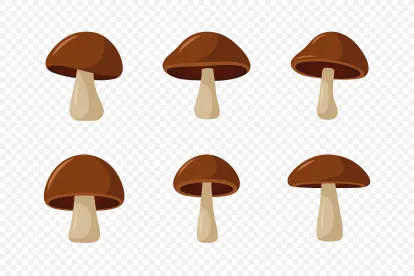We’ve been tossing this idea around in our heads ever since research about microdosing psychedelics entered the mainstream media a few years ago. And the more we think about it, the more we think Congress may allow patient access to psychedelic treatments before it does so for marijuana.
Before you think we’ve been consuming too much of either product, consider this: It now appears that a bipartisan majority of the House of Representatives will pass legislation directing the secretary of defense to conduct a clinical study in military treatment facilities using psychedelics. This is an extraordinary development that could revolutionize medical treatments and will certainly draw strong opposition from those who worry that the government is too quick to legalize products once viewed as taboo.
Wait, What?
You heard that right. Congress appears to be moving more quickly on allowing access to psychedelic medications than it does on medical cannabis. How did that happen?
As an initial matter, concern for mental health is at an all-time high. Patients and the medical community alike are looking for something new to treat a wide range of mental health conditions – ranging from addiction, anxiety, and PTSD to treatment-resistant depression. Couple this need with the increasing enthusiasm among funding sources (private and philanthropic) and researchers to learn more about the medical effects of psilocybin and other psychedelics, and a real opportunity exists to argue in favor of providing broader access.
Further, there is a perception that the research on the medical benefits has been more clinical in nature, whereas the research on cannabis has been more anecdotal. This may not be a fair characterization, and it largely ignores the difficulty in conducting cannabis research under current federal law. Nevertheless, the perception seems to be winning out in current policy debates.
Another subtle difference between the products is that, whereas cannabis is typically associated with a euphoric “high,” with proper dosing, psychedelics arguably do not create a euphoric effect. Instead, advocates of psychedelics position it more as a medicine that simply treats the underlying conditions and symptoms without the need for putting a patient in an obvious mind-altering state. Whether that is true of psychedelics or whether that is a fair characteristic of medical cannabis, it appears to be the tenor of current policy discussions regarding both products.
And here’s a difference that didn’t immediately jump to mind but may be important in swaying public opinion: Americans don’t smell psychedelics when they are being ingested on the street. Don’t underestimate the importance of the little things.
There is also a historical difference between cannabis and psychedelics. While both have been used by humans for centuries, perhaps there is less of a stigma with extremely low-dose psychedelic products than there is with cannabis. After all, cannabis has been closely (and often wrongly and unfairly) associated with certain types of people that become easy targets for lawmakers. In the 1930s, when the Marijuana Tax Act became law, the targets were immigrants, bohemians, and “jazz musicians,” with all of the connotations that came with that term at the time. It was also the victim of industrialists who viewed cannabis (hemp, in particular) as a threat to existing sources of products such as paper. In the 1970s, when the Controlled Substances Act became law, the target was largely inner-city residents and protestors of the Vietnam War.
Psychedelic substances, however, have been less prominent in popular culture and have largely escaped the attention of lawmakers. Proponents of psychedelics, therefore, have less of a stigma to overcome and are well-positioned to argue that the products are well-studied medications as opposed to looking for federal approval of a previously vilified substance.
Next Steps for Psychedelic Medications
Before we get ahead of ourselves, let’s level set. First, the language before the House is relatively modest. “The legislation does not legalize psychedelics or even make them readily available as medicines. It just makes the drugs a little easier to study, and easier to understand.” Second, it may face stronger opposition in the Senate. Even though the upper chamber is (narrowly) controlled by Democrats, it is generally viewed as more conservative on these types of issues. As just one example from the cannabis world, the House of Representatives passed the SAFE Banking Act (allowing financial institutions to bank cannabis proceeds in certain circumstances without implicated money laundering rules), and that legislation has yet to come to the Senate floor for a vote.
The next immediate hurdle for psychedelics is the Senate and then the White House, which may be forced to decide whether to sign such legislation in an election year. If the legislation becomes law, the next hurdle is expanding the use of psychedelics beyond clinical studies and the military. That is a big step, but it will seem a bit smaller if there is already legislation allowing for its use for certain purposes.
And for what it’s worth, lawmakers considering the proposal will learn that the federal government wouldn’t be alone if it allowed for the use of psychedelics. Australia recently announced it will permit the prescription of MDMA for the treatment of post-traumatic stress disorder and psilocybin for treatment-resistant depression beginning July 1. And domestically, the states of Oregon and Colorado have already legalized the use of certain psychedelics.
Impact on Cannabis Reform Efforts
So, what, if anything, does this mean for long-standing and enduring efforts to reform cannabis policy at the federal level? We think it comes down to a simple question: Is this a rising tide phenomenon where psychedelics and cannabis can gain popular and political acceptance as medications, or is it a zero sum game where the success of one means the failure of the other (as the poet wrote, “maybe you’ve had too much too fast”)?
While it’s impossible to know for sure, we think the former is more likely. As the general public becomes more accepting of the use of these products as medicine and as the research on the medicinal benefits grows, we believe Congress is likely to take a less skeptical view of them.
That doesn’t mean the path will be easy for advocates of the products. After all, these developments are taking place against the backdrop of decades of legal and popular opposition. And there may be a desire for the proponents of cannabis to press for progress in that industry at the expense of the psychedelic industry, and vice versa.
Ultimately, however, we believe that if Congress begins to accept the notion that once-illegal products can provide medical benefits to Americans, that is a win for both industries.
Conclusion
Cannabis has long been considered by many to be a gateway drug to other illicit substances. But is it possible that Congress will recognize psychedelics before cannabis? It’s a close call, but we think it just may happen. Stay tuned for much more.





 />i
/>i

